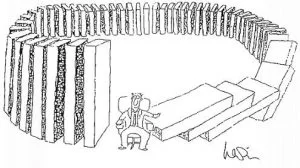This is a story of killing with kindness. Well, there isn’t any actual murder involved, but you’ll see what I mean.
About 30 years ago, when I was the director of training for a large national bank, I had the privilege of working with a kind, conscientious, and hardworking teller trainer named Donna.
She ran a two week training course for 15-20 tellers at a time. At the end of each day, a quiz reinforced the day’s teachings. After the two weeks, there was a comprehensive test. If the trainees passed the quizzes and the test, they would go into the branches for a six-week probationary period. If all went well, they would then become full-fledged tellers.
It was the bank’s policy that if a probationary employee had a shortage or overage, they were immediately terminated. One of the branch managers called me and asked me, as director of training, why so many tellers were ill-equipped when they came to his branch. As we did an analysis, we started to notice that several would-be tellers had suffered this fate.
I discussed this quandary with Donna and asked her to pull the fired tellers’ tests and quizzes. I began to notice a common thread: lots of eraser marks and crossed-out answers on the ex-employees’ papers. It was then that I learned that kind-hearted Donna was helping the struggling students with their tests.
I explained to her that we had a system in place — the tests and quizzes — that worked. But because she was ‘helping’ the tellers, it wasn’t working. She had to stop. She agreed.
Fast-forward eight months: Tellers were still getting fired during the probationary period. One teller had just purchased a car that he now was going to have to return, and another failed teller was going to have to break a lease on her apartment. In both cases, the two would-be tellers simply didn’t have the needed math skills, a fact that should have been evident on the tests. It was clear that Donna had helped them, and I called her on it. “I just want everybody to succeed,” she lamented.
My response: “Wouldn’t it have been kinder to those people if they had known in the first week of training that it wasn’t going to work out?”
She burst into tears. “I blew it.” Donna resolved to stop changing test results for the tellers, and our probationary firings decreased dramatically.
No one can blame Donna for doing what she perceived to be kind and compassionate. But in reality, her actions were just the opposite. When we work with people, it’s important to ask ourselves: “What is my motivation? Am I really serving the best interests of the employee?”
What employer policies do you have in your workplace that help employees?





0 Comments